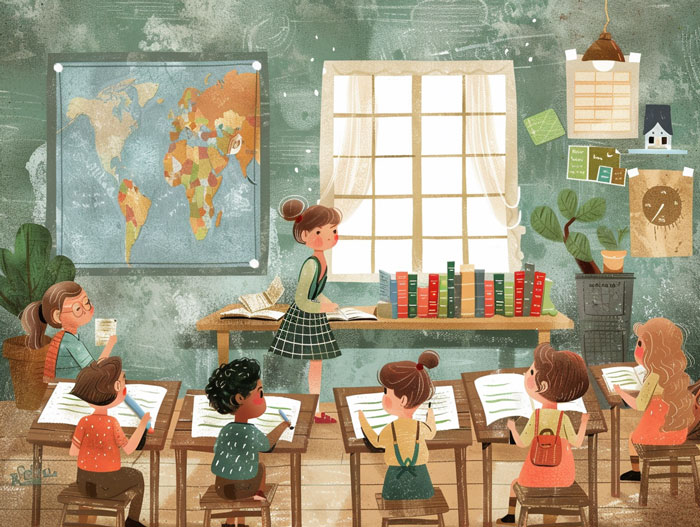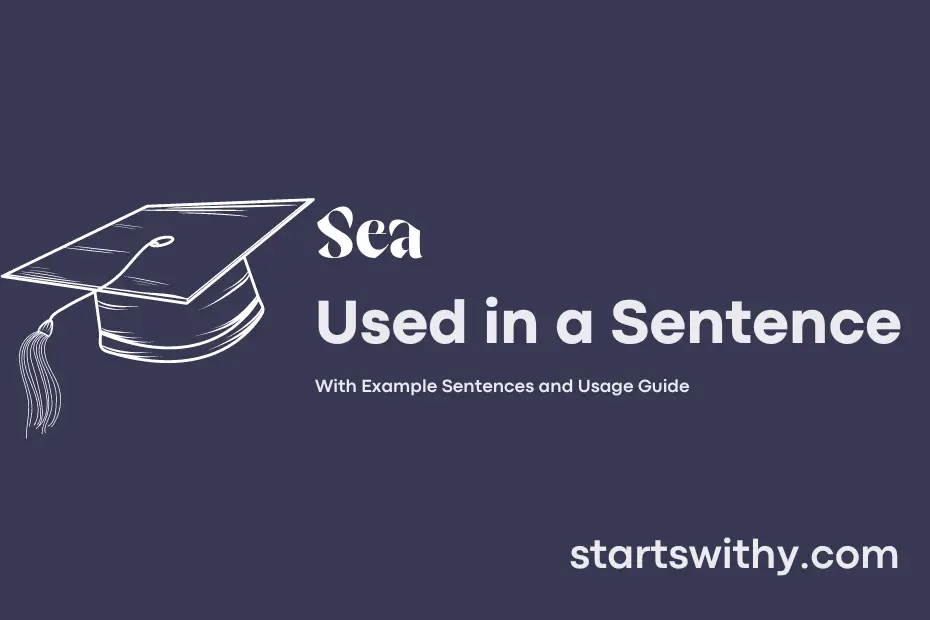Have you ever been mesmerized by the vastness of the sea, alluring in its beauty and mystery? The word “sea” refers to large bodies of saltwater that cover a significant portion of the Earth’s surface, playing a crucial role in our planet’s ecosystem.
In grammar, “sea” can be used as a noun in sentences to describe the expanse of water, whether calm or turbulent, as well as the activities, creatures, and phenomena associated with it. From serene beach views to raging storms at sea, examples with “sea” can paint vivid images and evoke a sense of wonder and tranquility.
7 Examples Of Sea Used In a Sentence For Kids
- The sea is big and blue.
- I saw a boat on the sea.
- Fish swim in the sea.
- We can build sandcastles by the sea.
- The sea waves make a soft sound.
- Seashells can be found near the sea.
- The sea is home to many creatures.

14 Sentences with Sea Examples
- Sea is necessary for marine studies, so a beach visit might be a good idea.
- The library had tons of books on marine biology and the sea, perfect for my research paper.
- I purchased a new pair of sunglasses for my upcoming sea trip with friends.
- The college organized a field trip to the coast to study the impact of pollution on the sea life.
- I found a great article on the importance of conserving the sea ecosystem for our environmental science project.
- Sea pollution is a growing concern among college students, sparking discussions in our environmental club.
- I signed up for a scuba diving course to explore the wonders of the sea.
- The literature class discussed poems and stories inspired by the beauty of the sea.
- Our college team participated in a beach clean-up initiative to protect the sea creatures.
- The geography department organized a trip to study the geographical features of the sea.
- I enjoy painting the sea and its various moods as a way to unwind after a busy day of college classes.
- The college cafeteria started serving sustainable seafood options to promote responsible consumption of sea resources.
- The campus film club screened a documentary about the mysterious creatures of the deep sea.
- I joined a coastal conservation group to volunteer for projects that aim to protect the sea environment.

How To Use Sea in Sentences?
Sea can refer to a large body of saltwater or a vast expanse of a particular area. When using the word sea in a sentence, it is important to remember a few key points.
Firstly, the word sea should be used to describe a specific body of saltwater, such as the Mediterranean Sea or the Atlantic Sea. This helps to provide clarity and specificity in your sentence.
Secondly, when using sea to describe a vast expanse of a particular area, such as a sea of flowers or a sea of people, it is essential to provide context so that the reader can understand the comparison being made.

For example, “The boat sailed across the calm sea,” is a clear and concise way to use the word sea to describe a specific body of water.
On the other hand, “She was lost in a sea of faces at the concert,” effectively communicates the idea of being surrounded by a large crowd.
Overall, using sea in a sentence is a great way to add depth and vivid imagery to your writing. By keeping these tips in mind, you can effectively incorporate this versatile word into your sentences with ease.
Conclusion
In summary, the examples provided show the versatility and beauty of sentences that incorporate the sea as a central theme. The sea, with its vastness, mystery, and power, serves as a rich source of imagery and inspiration for writers across different genres and styles. Whether describing its calming waves, tumultuous storms, or bountiful marine life, the sea is a timeless motif that adds depth and emotion to literary works.
From evoking a sense of adventure and exploration to representing the passage of time and emotions, sentences with the sea capture the essence of human experience and the natural world. By skillfully weaving this watery landscape into their writing, authors are able to transport readers to distant shores, evoke powerful emotions, and create vivid mental images that linger long after the words have been read.



